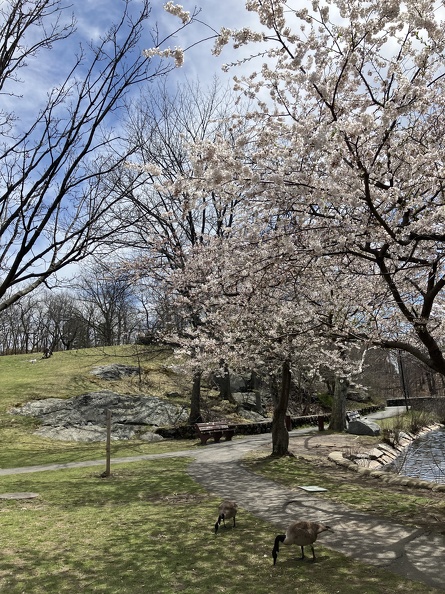I came across this article, titled “Avoiding the ‘Last Straw’ in Cases of Bullying,” by Joni E Johnston Psy.D. in Psychology Today. The article explains how professionals can intervene with victims of bullying to prevent the victims from becoming bullies themselves.
What struck me about this article was that it places the responsibility for preventing bullying on the victims, rather than on the original bullies. The article outlines the interviewing, questioning, and interventions that bullying victims should be subjected to, while failing to advocate that bullies be subjected to any type of consequences for their behavior.
“Let’s pretend that a school counselor is concerned that a bullied teen might become violent to get revenge,” the article hypothesizes. “They call in a threat assessment professional to conduct an interview.” The article discusses the types of questions that should be asked during the interview and encourages adults to “intervene early,” to develop “an appropriate intervention plan,” to provide “comprehensive, compassionate care,” and to “guide them toward healthier, nonviolent coping mechanisms.” Johnston also characterizes bullying victims who are angry about their bullying as having an “aggressive behavior problem.”
But bullying victims do not deserve to be grilled by a threat assessment professional. Bullying victims do not need intervention. They do not need “care.” They do not need to be guided towards different coping mechanisms. Being angry that one has been bullied is not a medical problem, it is not a psychological problem, and it is not a behavior problem. It is completely justified. By targeting victims for intervention, Johnston is treating victims as if they are the ones who have done something wrong. But victims haven’t done anything wrong; bullies have. It is the bullies, not their victims, who have an aggressive behavior problem. And it is the bullies, not their victims, who should be subjected to intervention.
The article discusses the personal characteristics of bullying victims that allegedly make them more likely to turn into bullies. For example, victims who “are socially awkward,” and who lack “protective factors, such as abstract thinking abilities, empathy, and self-regulation skills.” But it is wrong of Johnston to scrutinize victims’ personal characteristics at all, because this sends the message that victims are somehow to blame for being bullied, due to a lack of positive traits and skills. In reality, the only person to blame for bullying is the bully. It is the bully, not the victim, who should have their personal characteristics subjected to scrutiny.
The article lists potential events that could trigger a bullying victim to turn into a bully, including:
- A new, severe bullying incident that feels like the “last straw”
- Seeing their bullies receive acclaim or reward, which feels profoundly unjust
- Feeling publicly humiliated by their bullies
- Perceiving that adults have failed to protect them or take the bullying seriously
It is interesting that by listing the potential triggers above, Johnston is actually admitting that the things that cause a victim to turn into a bully are entirely within the control of the adults in the situation. This further supports the idea that the burden of change shouldn’t be placed on the bullying victim. If adults actually handled bullying correctly – namely by punishing the bully – then no one would have to worry about bullying victims turning into bullies.
Going down the list of triggering incidents: if adults actually punish bullies significantly, including by removing them permanently from the environment if necessary, then bullies will not be in a position to perpetrate any additional bullying incidents or to publicly humiliate their victims. If institutions don’t bestow acclaim or rewards on bullies, then victims won’t have to see their bullies receive acclaim or rewards. And if adults protect victims and take bullying seriously, then victims will not perceive that adults have failed to do these things.
In other words… instead of providing “care” to victims to help them cope with seeing their bullies receive acclaim and rewards, maybe we should, I don’t know, not give acclaim or rewards to bullies. Maybe the reason why seeing a bully receive acclaim and rewards “feels profoundly unjust” is because it is profoundly unjust.
In conclusion, the approach recommended in this article makes victims the target of intervention and places the onus of change on them, when in reality, it is the bullies themselves who should be subjected to interventions such as interviews with threat assessment professionals and scrutiny of their personal characteristics. Victims of bullying don’t need care, they don’t need monitoring, and they don’t need to be guided toward better coping mechanisms. They need, and deserve, justice. Instead of subjecting victims to various interventions in an effort to help them cope better with being bullied, our society needs to actually punish the bullies.
Returning to the title of the article, the way to avoid the “last straw” in cases of bullying is to avoid committing it, and to prevent bullies from doing so. This means for our society to punish bullies severely, to unanimously condemn them, to refrain from giving them awards of any sort, and to prevent them from committing any more bullying incidents by any means necessary, including by removing them entirely from the environment.
One final note: I noticed that throughout the article, the author equates seeking revenge with becoming a bully. A few examples:
- “some seek revenge and become bullies themselves”
- “the victim’s internal world differentiates those who seek revenge from those who don’t”
- “being frequently bullied ups the odds for a desire for revenge”
- “it’s the latter type—this angry rumination—that fuels the desire for retaliation”
- “a bullied teen might become violent to get revenge”
But seeking revenge and becoming a bully are not even remotely the same thing. For a victim to seek revenge on their bully does not make them a bully; it makes them someone who defends themselves and stands up for themselves. Taking revenge on a bully is completely justified, because bullies deserve punishment. For a victim to turn into a bully, on the other hand, involves harming innocent people who have done nothing wrong, which is unjustified. Harming the original bully (justified) and harming innocent people (unjustified) are two completely different things.
Just as Johnston ignores the distinction between justified and unjustified violence by equating revenge with becoming a bully, she ignores the fact that bullies deserve to be the targets of intervention while victims do not. To lump all violence together goes along with the mentality of placing the burden on the victim to fix the situation. Johnston clearly values preventing violence and making schools safer, which are worthy goals, but she is ignoring something even more important: the entire concept of fairness versus unfairness, justice versus injustice, right versus wrong.
Perhaps this article isn’t about preventing victims from turning into bullies, after all. Perhaps the entire article is actually about preventing victims from taking revenge on their bullies, something that Johnston inaccurately characterizes as victims turning into bullies. If this is the case, then not only do I object to the idea of placing the burden for change on victims, but I object to the entire goal. For victims to take revenge on their bullies isn’t something that should be prevented at all, because revenge is exactly what bullies deserve.









